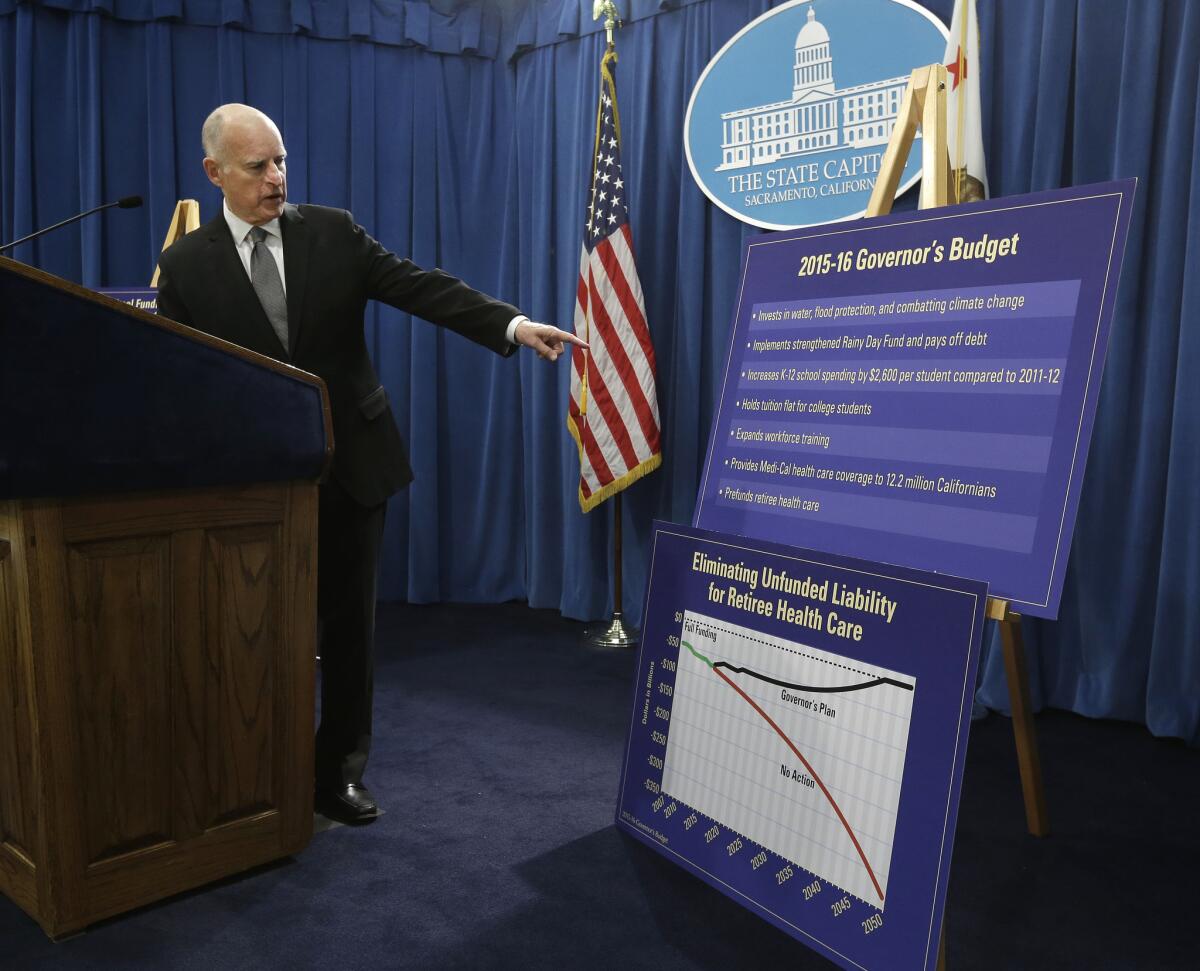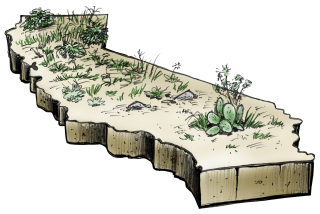Drought unlikely to cause major damage to California economy, analysts say

Gov. Jerry Brown details his latest spending plan in January. It’s unlikely California’s drought will hammer the state’s budget or overall economy, legislative analysts say.
- Share via
Reporting from Sacramento — California’s drought has threatened farmers, ski resorts and golf courses, but it’s unlikely to do much damage to the state’s overall economy or budget, according to a new report.
“We currently do not expect the drought to have a significant effect,” said the report, released Tuesday by the nonpartisan Legislative Analyst’s Office, which provides budget advice to state lawmakers.
The minor impact is explained by the lopsided relationship between water use for farming and agriculture’s overall contribution to the state economy.
Farmers consume four times as much water as California’s cities and towns, and they produce a huge portion of the country’s crops.
But they contribute only 2% to the state’s gross domestic product, according to the seven-paragraph report.
Moreover, just 3% or 4% of Californians work in agriculture.
“Even a substantial decline in agriculture’s share of the economy, such as ... during and after the 1976-77 drought, probably would have only a limited impact on the overall state economy,” the report said.
In fact, the report said, the state’s economic output actually increased during that time.
This year, tax collections are unlikely to suffer from the drought, and so far they’ve outpaced expectations. Revenue was $1.3 billion ahead of projections at the end of March, according to the analysts.
California’s economy has been on the upswing in recent years, driven in part by a surging technology sector in Silicon Valley.
The influx of revenue has helped state leaders begin to build a rainy-day fund, pay off debt and chip away at hundreds of billions of dollars in long-term costs such as pension obligations.
“We adapt,” said Steve Levy, director of the Center for Continuing Study of the California Economy in Palo Alto. “This is an attractive place to be.”
None of that means the drought isn’t having a big effect on the state. Farmers have taken a $1.5-billion hit, fallowing 400,000 acres and laying off 17,000 people, according to state officials.
Paul Wenger, president of the California Farm Bureau, has warned about national and international economic effects if agriculture continues to suffer.
“When the price of your food goes up drastically in the store, and you don’t have access to fresh fruits and vegetables, we would probably have a different discussion about how important that 2% really is,” he said after a recent meeting in the Capitol.
Gov. Jerry Brown recently ordered a 25% cut in water use in urban areas, and there are new rules for watering lawns and golf courses.
However, the analysts cautioned that the restrictions won’t change the state’s economic trajectory.
“These are noticeable changes,” the report said, “but they seem unlikely in and of themselves to result in a significant drag on the state’s economy.”
According to Levy, “the big impact is inconvenience. It’s not the economy.”
Brown tried to strike a hopeful note in rural Colusa on Saturday, where he expressed his support for farmers suffering from the drought.
“I’m sure we’re going to find plenty of ways to prosper, even better, over the next few years,” he said.
Follow @chrismegerian for more updates from Sacramento.
FULL COVERAGE: Chronicling California’s drought
More to Read
Sign up for Essential California
The most important California stories and recommendations in your inbox every morning.
You may occasionally receive promotional content from the Los Angeles Times.














